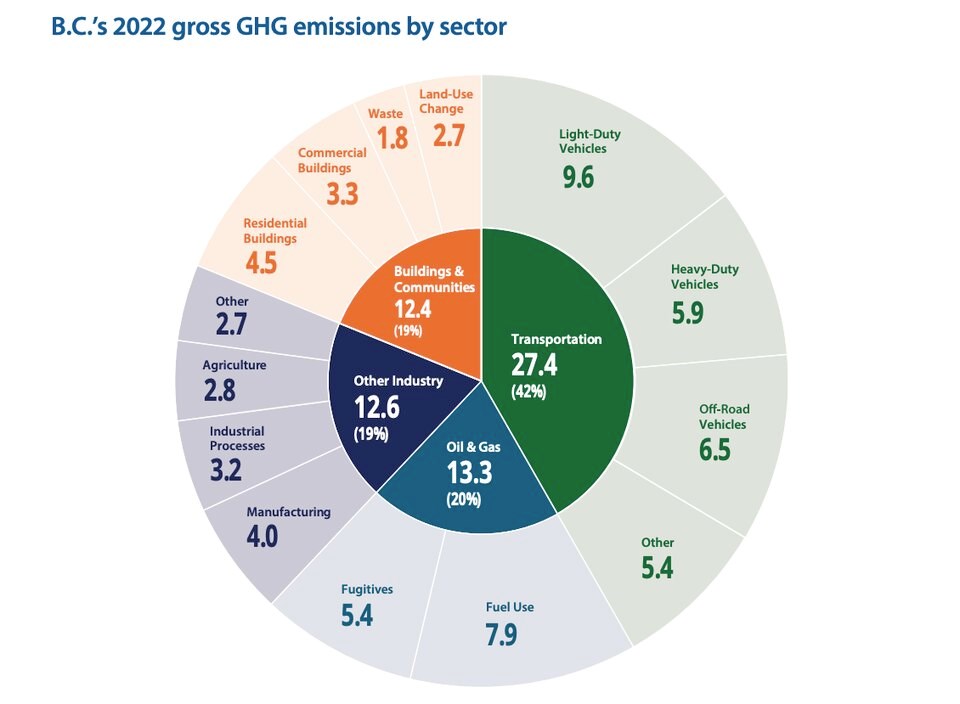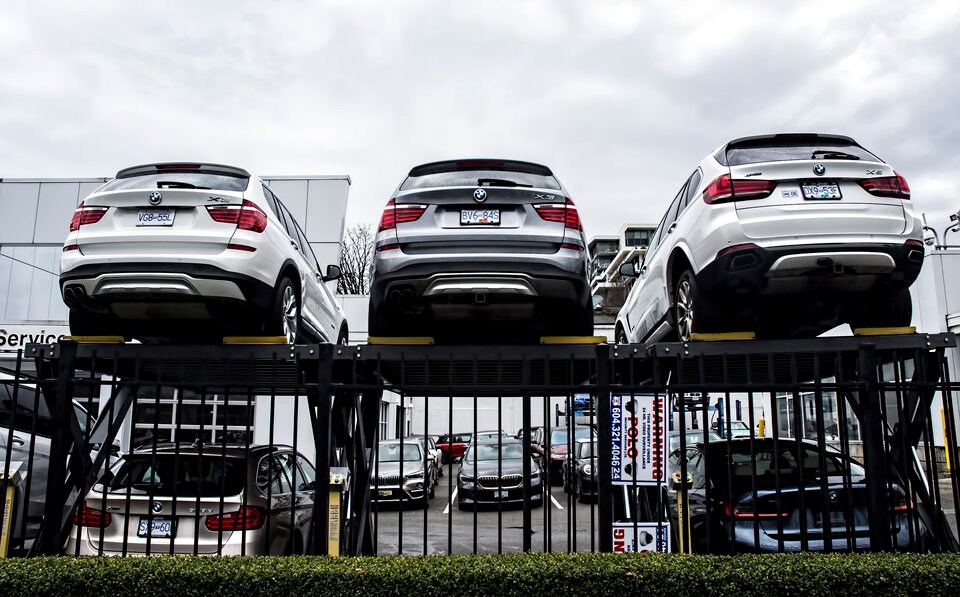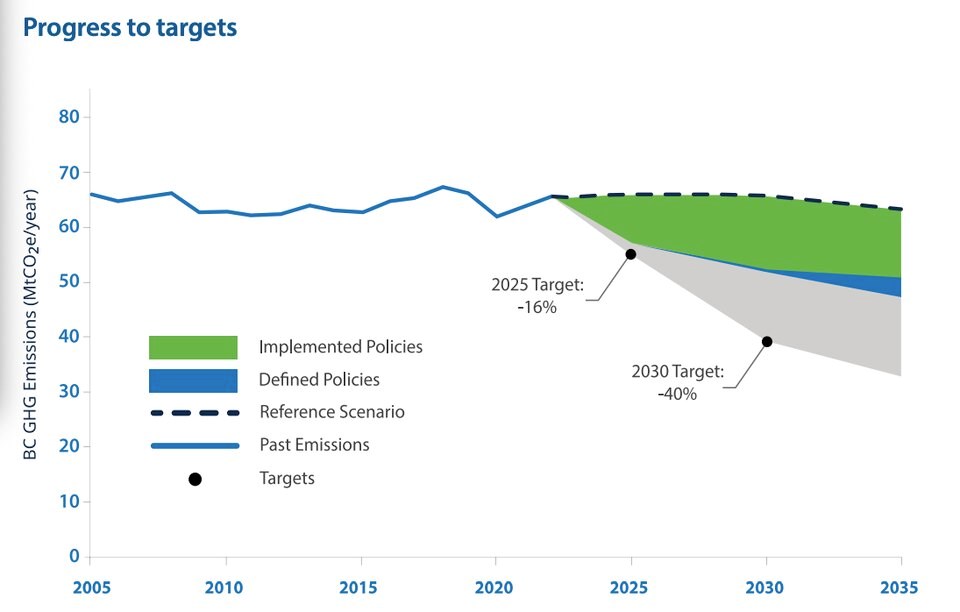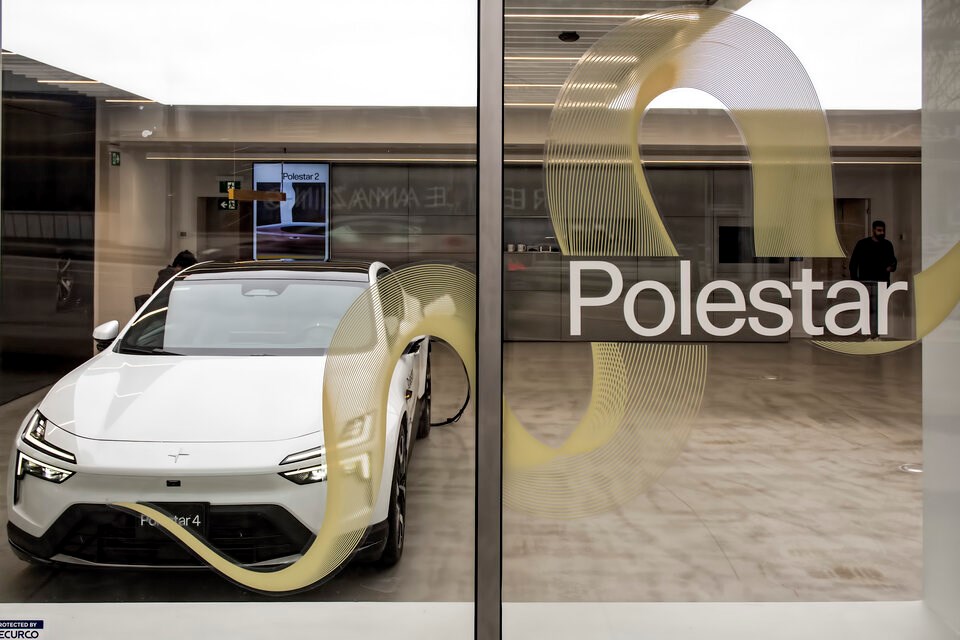Industry groups are slamming the B.C. government’s decision to pause its electric vehicle rebate program this week, saying the decision is illogical and will push the cost of an EV out of the hands of many consumers.
The province said on Tuesday it would pause the CleanBC Go Electric Vehicle Rebate Program starting May 15, at that point effectively halting up to $4,000 in rebates meant to help B.C. consumers purchase a new battery-powered car.
The decision came just a month after Canada's federal government officially paused its rebate program. Before this week's announcement, B.C. had repeatedly tightened access to its EV rebate program — limiting access to people making over $80,000 a year, reducing EV models eligible for the rebate and ending certain tax breaks.
Brian Kingston, president and CEO of the Canadian Vehicle Manufacturers Association, said B.C.'s latest move represents a major step backward in the province's support for the electric vehicle transition.
“It's extremely problematic, and that's putting it diplomatically,” Kingston said. “The provincial government has just vacated the playing field.”
Why governments provide EV rebates
Several analyses have shown electric vehicles are now cheaper to own and operate than a vehicle powered by an internal-combustion engine. But that only applies over the life-time of a vehicle, and the initial purchase cost for an EV remains a barrier.
Government electric vehicle rebate programs are intended to close that gap, incentivizing consumers to purchase an electric car during an interim period where the technology still remains more expensive than an equivalent gas-powered vehicle.
Between April 2015 and December 2024, the province handed out more than 109,000 rebates to British Columbians, including almost 25,000 in 2024.
But when to end the rebates and let the auto market transition to electric vehicles on its own momentum has become a policy flashpoint in jurisdictions around the world.

Recent reports from S&P Mobility and TD Economics suggest B.C.’s moves to restrict its rebate program in recent years has led to a flatlining of EV sales in a province that once led all other jurisdictions in North America. In other words, some experts say, it’s still too early to end the rebate programs.
In both Quebec and B.C., the removal of the national EV rebate has already led sales to plummet. With U.S. tariffs now battering Canada’s auto sector, Kingston agreed now is not the time to remove the B.C. rebates.
“What you’ll see over the next four weeks is a surge in sales. And the moment it’s gone sales will fall through the floor,” he said.
Mandatory EV sales target becoming increasingly impossible, say industry heads
The pause in rebates also comes at the same moment mandated EV sales targets are set to become more stringent.
B.C.'s policy requires 26 per cent of passenger vehicles sold by 2026 to be zero-emissions vehicles, a threshold that rises to 90 per cent by 2030. Automakers can be penalized $20,000 per vehicle for failing to meet that target.
Blair Qualey is president and CEO of the New Car Dealers Association of BC, which represents over 400 new car and truck dealers throughout the province.
The group, which has administered the EV rebate program on behalf of the province over its 14-year life, built the program on a model that adheres to a “proverbial three-legged stool,” said Qualey.
That includes: point of purchase rebates; convenient and reliable charging infrastructure; and educating consumers on new technology to understand how an electrical vehicle can meet their personal needs.
Today, Qualey said many of the early adopters of electric vehicles have dried up, leaving a big middle section of consumers who need more convincing and cheaper prices to choose an EV over a cheaper gas-powered car or truck.
“I hear all the time from people saying, I’m thinking about an EV but it’s just a little too expensive,” he said.
The removal of B.C.’s EV rebates makes that argument even harder. Combined with U.S. tariffs and government EV sales targets — both of which are squeezing the auto sector — that three-legged stool can no longer stand.
“I call it a freight train of pain,” said Qualey.

Kingston and Qualey both said B.C.’s EV sales mandates were highly likely to fail, even if the current EV rebate program wasn’t paused.
Removal of consumer incentives is expected to drive EV demand even lower, leaving manufactures in a tough position that could force them to reduce what vehicle models are available in B.C.
Qualey said that could lead to an increase in the cost of both new and used vehicles starting as early as this year.
He sees only two options to avoid such a scenario: weaken the EV sales targets or bring back a bolstered EV rebate that would boost demand beyond early adopters.
The association’s contract to administer B.C.’s EV rebate program ends in June, and so far, Qualey said he hasn’t received any indication that it will be renewed.
“Government told our dealers it’s a pause. We’ll wait and see if that’s the case,” he said. “Given the financial challenge the government is now facing, it might be a long pause.”
EV rebate pause part of a wider review of B.C.’s climate policies
Both the electric vehicle rebate program and the incoming sales targets have been key measures to reduce emissions and transition to a green economy. That plan is laid out under B.C.’s flagship CleanBC climate policy.
Following the election of a minority BC NDP government last year, the party banded together with the Greens to sign a four-year supply-and-confidence agreement.
Part of that agreement includes a review of CleanBC, a process Green interim leader Jeremy Valeriote said is intended to strengthen the province’s climate policies.
“We have to make up [lost] time and more innovative ways to actually reduce emissions,” the MLA for West Vancouver-Sea to Sky told BIV.

While industry heads say the pause in rebates and coming EV sales targets could lead to rising costs on all sides, some experts say it’s time to steer green incentives beyond early adopters.
Mark Zacharias, executive director of Clean Energy Canada, said that given the fiscal position of the B.C. government and how the rebate program currently works, a pause makes sense — but only if after the review, the program is strengthened and restarted.
Ideally, Zacharias said that would mean gearing the program toward families with two or three kids who live in the Lower Mainland or Interior, drive a lot, and can't currently get full access to the program.
“Our concerns is that it doesn’t get un-paused at some point after the CleanBC review,” he added.





